By the end of this course, students should:
– Know the basic concept, historical development, different schools and contemporary trends of marketing.
– Understand economic and psychological approaches to consumer behavior.
– Distinguish between Consumer (B2C) and Business-to-business (B2B) MARKETING
– Be able to apply strategies and techniques in pricing, positioning, branding and communication.
– Know about the current and future trends of marketing, including CSR, social, shared economy, political marketing.
Students should also have the skills needed to:
– Understand the role of the economical theories in different approaches in marketing. Functionalist, behaviourist, psychological, institutionalist, etc.
– Distinguish and understand the different motivations of consumer and B2B buyers.
– Know the basic concepts of influencing, reinforcing and motivating of consumers.
– Create criteria for selecting and evaluating target markets, and use that for positioning.
– Understand the theory of communication, recognize the different roles and tasks in corporate communication.
– Know the different fields of branding. Understand the financial importance of branding, distinguish between brand value and brand equity.
– Use the different methods of pricing, identify the links between economic, accounting and marketing orientation to pricing.
– Know about and apply latest tools in e-commerce, shared economy and social media.
– Understand the economic consequences of production and consumption externalities and their marketing aspects.
– Understand the ethical aspects of marketing and their relationship to CSR, stakeholder communication, social marketing, sustainability and consumer welfare.
By the end of the course, students should be able to:
– Make high level presentations.
– Use marketing techniques for special business cases.
– Prepare themselves for near-future marketing challenges.


Recent Comments